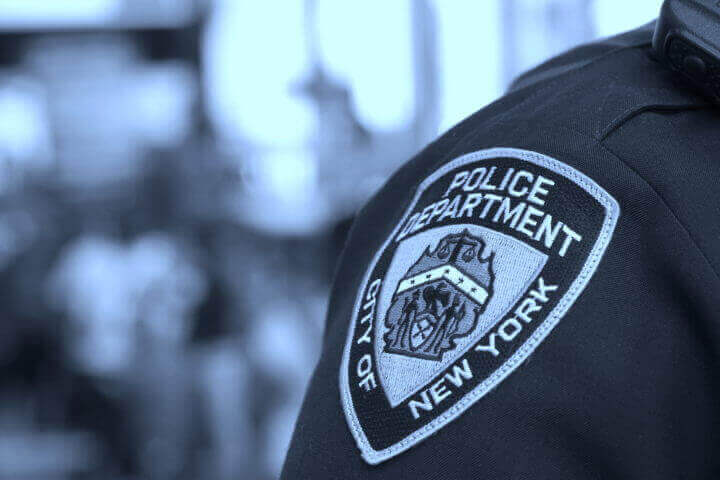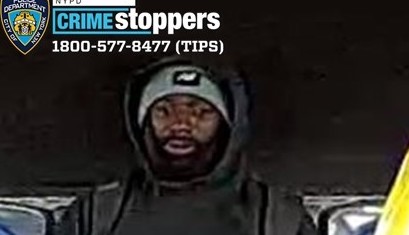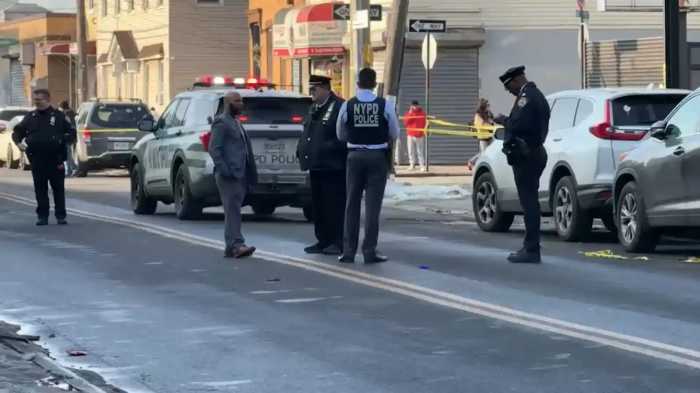A retired NYPD detective was sentenced for his role in running a lucrative prostitution and gaming enterprise in Queens, Brooklyn and Long Island with seven active duty cops and nearly three dozen civilians, prosecutors announced Tuesday.
Ludwig “Agua” Paz, 51, of Queens, was held without bail since his arrest in September 2018. He pleaded guilty to two counts of attempted enterprise corruption and one count of third-degree promoting prostitution in satisfaction of three indictments on May 21.
He was sentenced to serve four to 12 years in prison and agreed to forfeit more than $20,000 in illegal profits.
Paz’s wife, Arelis “Maria” Peralta, 44, also pleaded guilty to two counts of attempted enterprise corruption on May 21 and was immediately sentenced to 364 days in jail. Detective Rene Samaniego, 44, pleaded guilty to two counts of attempted enterprise corruption on May 8 in connection to this crime. He is due to return to court on July 24, where a judge indicated that Samaniego would be sentenced to two to six years in prison.
“A former vice detective used his insight and knowledge of NYPD operations to run lucrative prostitution and gambling rings. Furthering his criminal actions, the defendant used his connections with active duty officers to corrupt them into participating in his illegal ventures,” said acting District Attorney John M. Ryan. “This defendant ran a string of brothels in Queens, Brooklyn and Hempstead, Long Island, as well as having gamblers bet on established lotteries in various shops. These operations are out of business now and the defendant is going to prison. We will continue to combat this kind of corruption — even when the perpetrators are those entrusted to enforce the law. The court’s sentence today is more than just.”
According to the district attorney’s office, an investigation began in April 2015 after the NYPD’s Internal Affairs Bureau received an anonymous tip stating that some police officers – including both active and retired personnel – were involved in a complex illegal operation. Using court-authorized wiretaps, surveillance and other investigative tools, investigators identified the illegal network as well as numerous individuals who were involved.
Charges say that police determined that Paz and Peralta were the masterminds behind two illegal enterprises and, as a partner or sole operator, assisted with the day-to-day operation of seven of the eight brothels, which were located at Liberty and Onderdonk avenues in Queens; on Gates, Foster and Fourth avenues and 42nd Street in Brooklyn; and on Front Street in Hempstead, Long Island.
Samaniego, who was a Vice Detective at the time, worked closely with Paz and would provide him with police procedures, scheduled raids and other vital information that kept the brothels open. Charges say that Samaniego also disclosed detailed descriptions of undercover officers, including what they were wearing and their exact location when they were conducting an undercover assignment and approaching a brothel, which compromised the safety of the undercover police officers.
The intel from Samaniego allows Paz to set up protocols for new brothel clients that weeded out undercover detectives. For example, knowing that undercover cops could not expose their genitals when interacting with prostitutes, Paz required new clients to undress and permit fondling before getting past security. Paz also used his contacts within the NYPD to thwart raids by paying for confidential information.
Charges say that the prostitution ring alone allegedly made over $2 million in 13 months using online ads to entice customers. After getting through the screening process, clients were given their choice of sex workers and paid up to $40 for 15 minutes of sexual activity or up to $160 for a full hour.
Paz and Peralta also profited from illegal lotteries set up at several legal businesses – including a deli on Springfield Boulevard, a hair salon on 243rd Street, both in Queens, and a beauty salon on Flatbush Avenue in Brooklyn. The lottery operations were comprised of managers, runners and agents with working offices where bets were placed on legal lotteries.

































